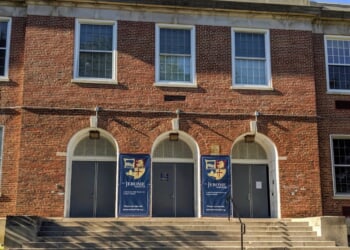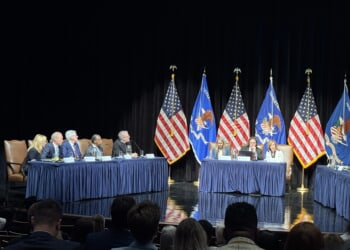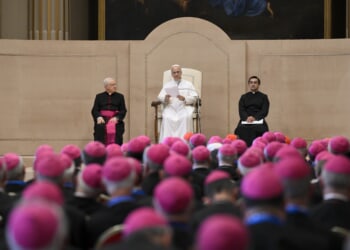Lord Hannan of Kingsclere was a Conservative MEP from 1999 to 2020 and is now President of the Institute for Free Trade.
A curious thing about politics in the 1970s was how calm it was. The country was collapsing: a three-day week, prices and incomes policies, endless strikes, power cuts.
The Cold War was going badly, and many feared that the Labour Left was a Soviet fifth column. The National Front was making its ugly presence felt. Yet the tone of our political discourse remained civilised and civil.
I have been reading the diaries of Sir Neil Martin, an unusual (in those day) Conservative Leaver. They cover the whole of that baleful decade. What comes across is not just his own equanimity, but that of almost all his MP colleagues.
Just as Vote Leave in 2016 did everything it could to foreground its few, but high-calibre, Labour supporters (Graham Stringer, Kate Hoey, John Cryer, Kelvin Hopkins), so its predecessor in 1975 fought to get airtime for the minority of Eurosceptic Tories (Teddy Taylor, Richard Body, Roger Moate, John Biffen). Sir Neil was the closest thing those Eurosceptics had to, if not exactly a leader, at least an organiser.
The two referendums were, in many ways, mirror images, and not just in their outcomes. In 1975, it was Labour that split while the Tories were largely pro-European – though their new leader, Corbyn-like, was excoriated for keeping too low a profile (the famous photograph of Margaret Thatcher in that hideous jumper made up of the nine EEC flags gives a false impression; she was far more reluctant than we now recall).
In 1975, Welsh and Scottish separatists pushed for a No vote partly in the hope that securing a different result from England’s might strengthen the case for secession. “Scotland knows from bitter experience what treatment is in store for a powerless region of a Common Market,” said Alex Salmond. In the event, the only constituencies that voted No were Scottish.
In 1975, Leavers raged at the tabloids for their bias, especially the Daily Express’s insinuation that voting No was pro-Soviet. Oddly, from our perspective, the one newspaper they regarded as more or less fair was the Financial Times. In 1975 the NUS, led by Charles Clarke, threw its weight behind Leave.
But the most striking difference was this: in 1975, the losers accepted the result with good grace. Here is Sir Neil’s diary entry from the day of the vote, 50 years ago this month:
“So that was that – I gave a party in the House of Commons for about 80 workers and we all went home. Enoch said nice things about me. Then home to Banbury with Joan and Maggie and a simply glorious weekend of sun – rest, relax, tennis. Unwound.”
How much trouble we might have been spared, culturally and constitutionally, if Remain MPs had responded similarly to the 2016 referendum.
It is all about perspective. Sir Neil was 23 when the Second World War broke out, and was recruited by the Special Operations Executive. Days before what was meant to be his wedding, he was parachuted into France with a radio operator who was killed by the drop. With no communications, he fought his across the country alongside the maquis. Later, he worked with in Norway with the resistance, some of whom became his lifelong friends.
Fighting a war puts fighting a referendum into proportion, and the heated rhetoric which followed the 2016 campaign (followed rather than accompanied – the culture war only got going after the result came in) would have seemed hysterical to both sides in 1975.
I don’t believe our politicians as a group are in decline. People have been making that claim since Seneca’s time, and it always elicits wild applause, but it does not stack up.
Nor do I have much time for the notion of some division between the People (patriotic, decent, honest) and the Politicians (devious, greedy, corrupt). Democracies get the leaders they deserve, and many of the complaints against MPs are simply howls of protest from voters who refuse to recognise the trade-offs and constraints within which they must operate.
But I do think the temper of politics can change. The key to being selected as a Conservative candidate in the 1950s was to have “had a good war”, and many of the MPs in Martin’s time still approached politics in a fundamentally soldierly way: dutiful, calm and, if not exactly uncomplaining, certainly never catastrophizing.
It was a very different picture in, say, the Eighteenth Century, when many MPs seemed to drift through Westminster in a haze of brandy and laudanum, weeping, fainting, duelling, screaming.
Our own age, screen-addled and impatient, gets the sloganeering and short-termist MPs that reflect its character. Everything becomes a culture war, and what should have been a reasoned conversation about trade, sovereignty, and money became a Test Of What Kind Of Country We Are.
In many ways, we are reliving some of the nastier aspects of the Seventies: industrial strife, rising prices, economic stagnation and, perhaps before long, power cuts. But I can tell you now that our politicians will not respond with the same degree of phlegm. A democracy, as I say, gets the leaders it deserves.


![Former Bravo Star Charged After Violent Assault Using a Rock-Filled Sock in Tennessee Walmart [WATCH]](https://www.right2024.com/wp-content/uploads/2025/07/Former-Bravo-Star-Charged-After-Violent-Assault-Using-a-Rock-Filled-350x250.jpg)



![Karoline Leavitt Levels CNN's Kaitlan Collins and Other Legacy Media Reporters [WATCH]](https://www.right2024.com/wp-content/uploads/2025/07/Karoline-Leavitt-Levels-CNNs-Kaitlan-Collins-and-Other-Legacy-Media-350x250.jpg)
![Man Arrested After Screaming at Senators During Big Beautiful Bill Debate [WATCH]](https://www.right2024.com/wp-content/uploads/2025/06/Man-Arrested-After-Screaming-at-Senators-During-Big-Beautiful-Bill-350x250.jpg)



![Illegal Alien Walked Free After Decapitating Woman, Abusing Corpse for Weeks [WATCH]](https://www.right2024.com/wp-content/uploads/2025/07/1753013138_Illegal-Alien-Walked-Free-After-Decapitating-Woman-Abusing-Corpse-for-350x250.jpg)





